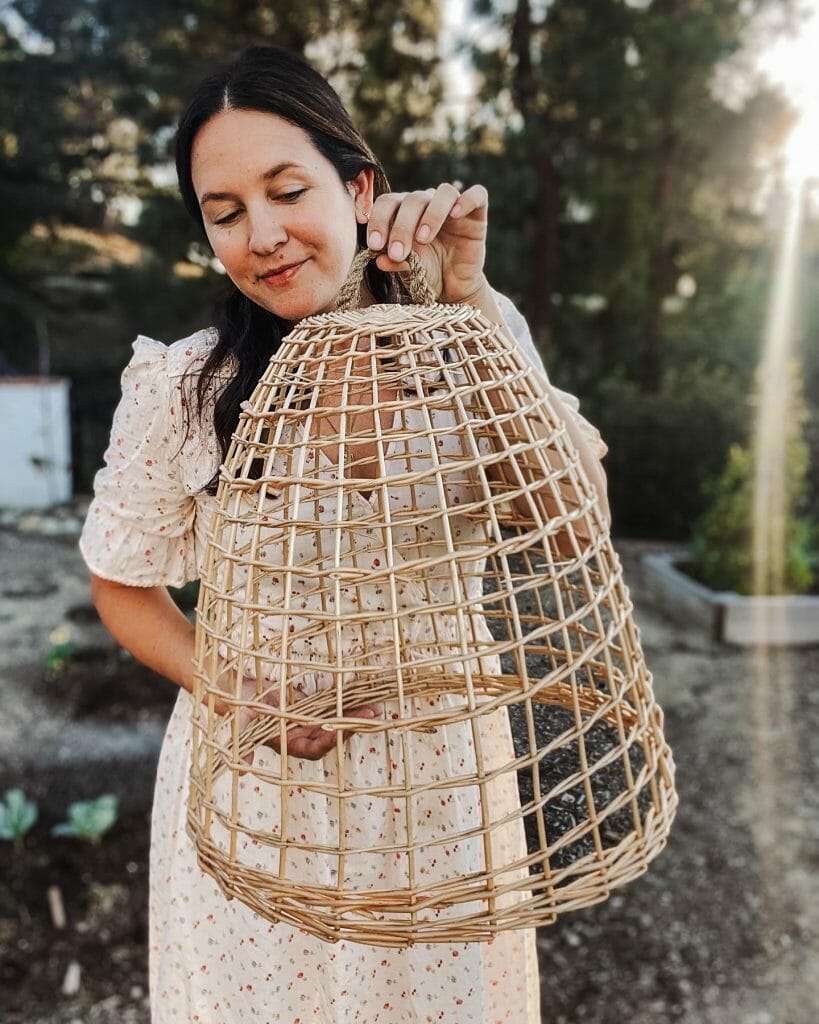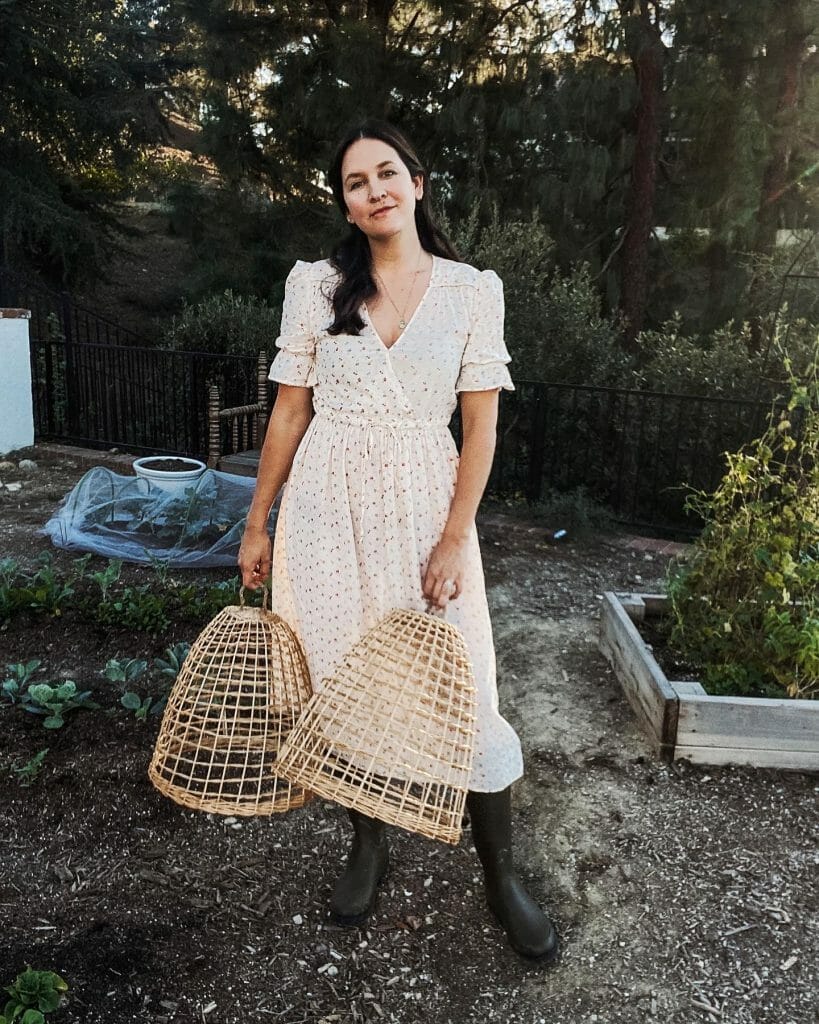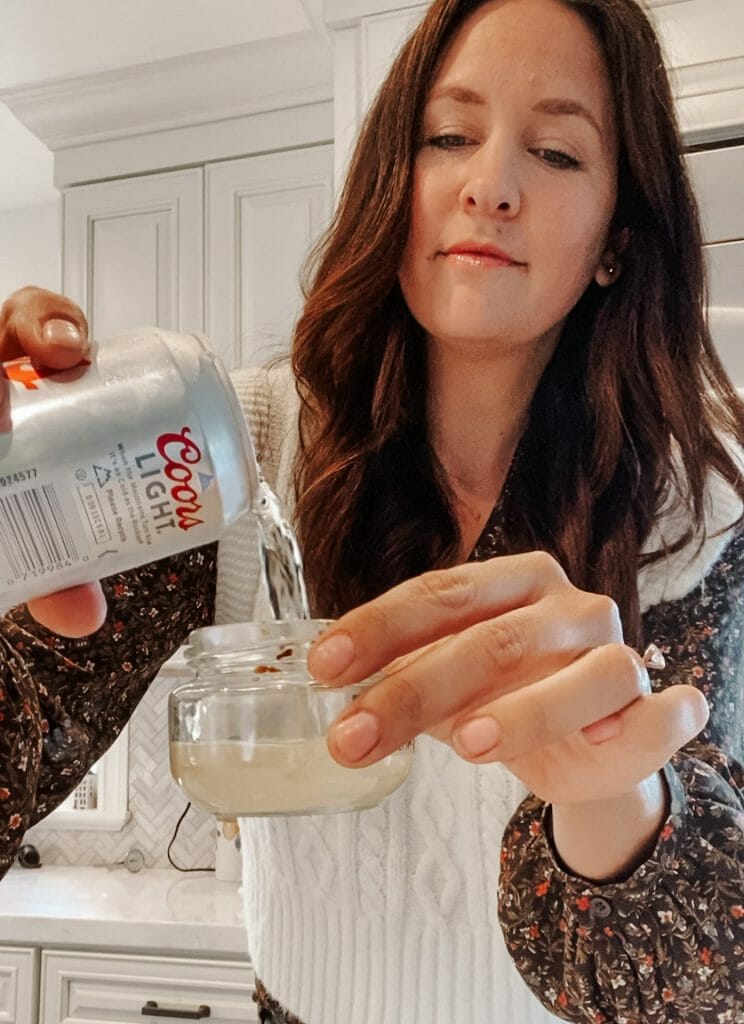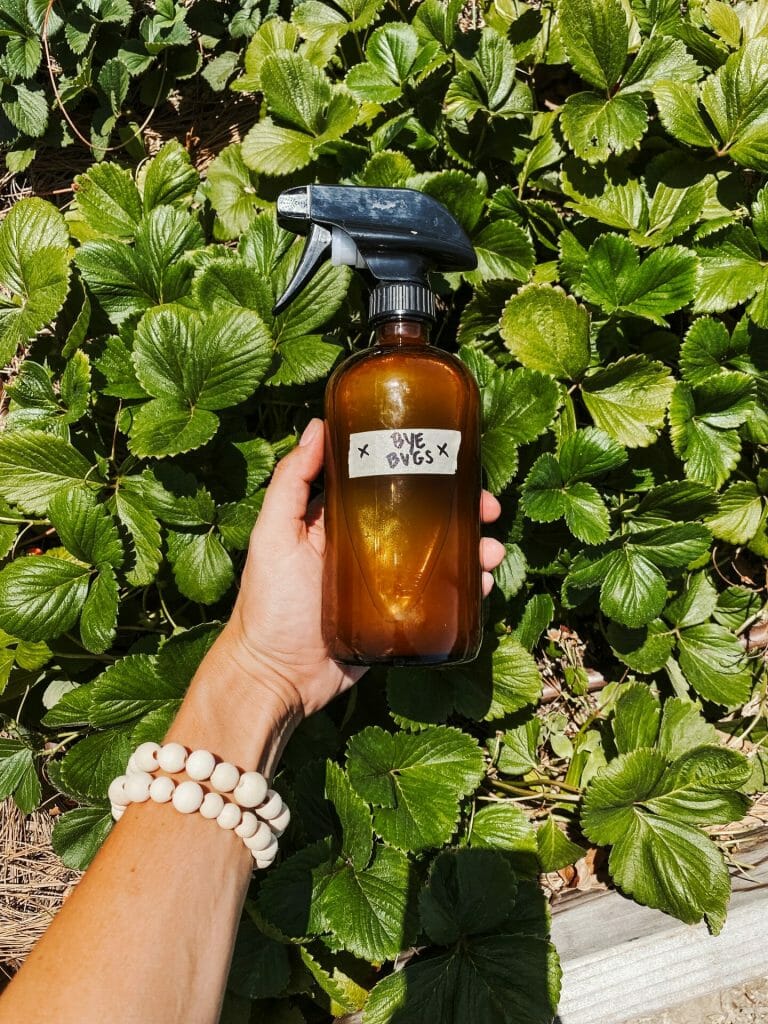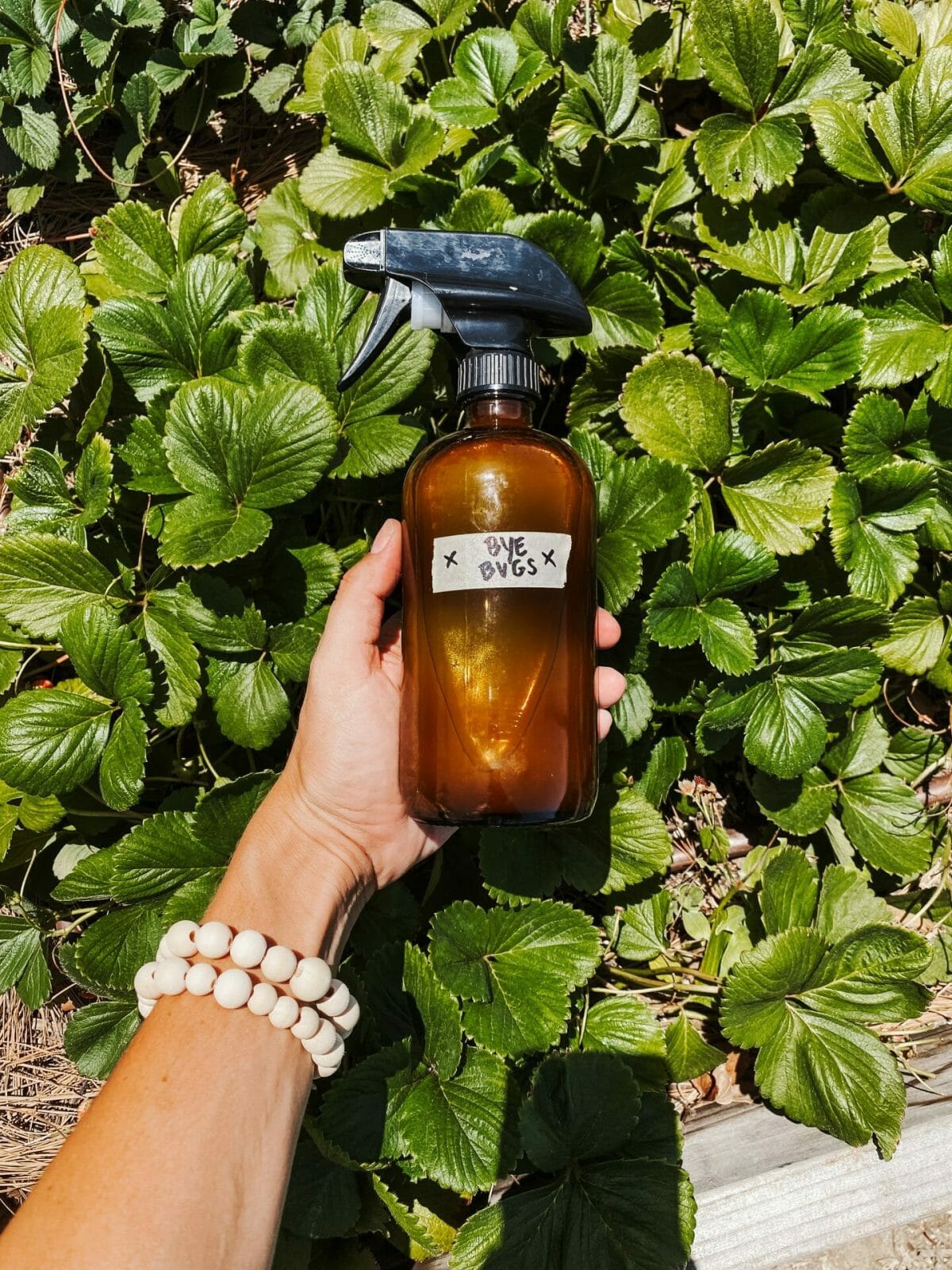
12 Organic Pest Control Options
This time of year (Fall into Winter) pests are just as rampant for us as they are in the Spring. They’re just different. Nonetheless, we take a completely organic approach, using all the natural methods. Organic pest control is a non-negotiable for me, as I’d rather live with some minor pest issues than introduce harmful chemicals into our lives.
So, we have options my friends, lots of options.
The first thing to keep in mind with organic pest control – and any pest approach really is prevention. We prevent by creating first and foremost, strong plants. Secondly, we create barriers.
Strong plants have good soil, which is the ultimate foundation for healthy gardens. Feed the soil before you feed the plants and find yourself not needing fertilizer or pest solutions. Healthy soil is loamy, has worms, and has a lot of nutrients from compost, worm castings, and low disturbances.
Organic pest control then means organic soil and plants, followed by some created obstacles for pests like fences, cloches, chicken wire coverings, netting, or spice blends and predatory urine sprays.
It’s wise to research pest issues in your hardiness zone and prepare yourself for them in advance.
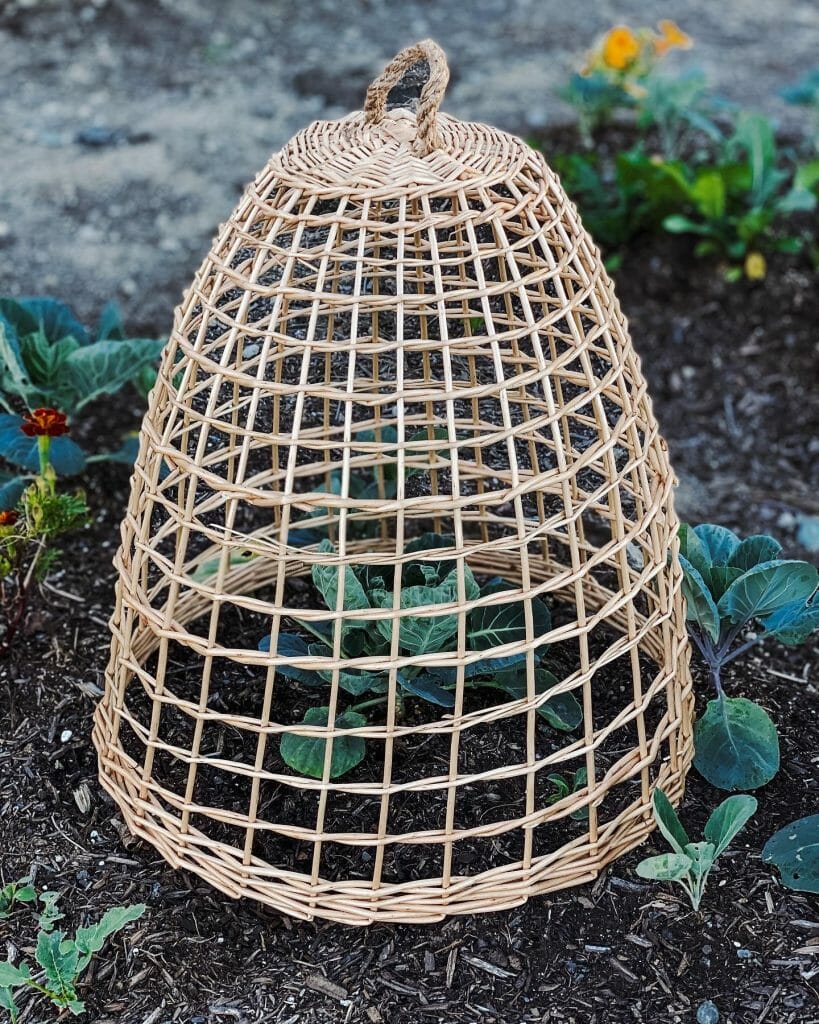
For the slugs, caterpillars, earwigs, and cabbage loopers, etc.:
There’s not as much prevention here, if you have a slug or looper already alive somewhere. Cabbage loopers though hatch from eggs on plants that those cute white butterflies leave. Cloches and sometimes mock white butterflies can deter them.
BT (Bacillus Thuringiensis): this is my go-to as soon as I notice any leaf-eating caterpillars. BT is actually a naturally occuring bacterium, so I buy this in a concentrated form and dilute with water according to the instructions. This is also recommended for earwigs!
Beer traps: simply pour some beer into a rinsed out tuna can or old garlic jar and place in the garden where slugs are eating plants. Within hours, they’ll have climbed in and can’t get out.
Copper wire: they sell “copper stop” at nurseries and it is said to be really helpful.
Clôches: these can help keep anything winged from landing on plants and laying eggs (like the cabbage moths).
Cabbage butterfly decoys: a girlfriend of mine has a free printable of these! I’ve printed them, then taped over them to make them waterproof, then secure them to a stick and place in the garden near plants that cabbage butterlies like.
For flying insects like aphids, thrips, and white flies:
Organic solutions for tiny flying pests really comes down to Neem oil for me. But there are two other approaches that I have tried and use as well.
Neem Oil: here’s the deal with Neem – be sure to get 100% Neem oil that is organic. Do not buy something that simply has Neem as an ingredient, because it becomes non-organic and often checmical-laden. This is great for mealy bugs, thrips, aphids, and whiteflies
Trap Plants: some plants attract pests, which steals them away from your veggies! Yay! Nasturtium is a trap plant for aphids, so I plant them amongst my cabbages and broccoli.
Castile soap: sometimes just a little watered down castile soap will do the trick. I always have this on hand.
For rodents and some big critters:
Fencing is the biggest prevention in this situation, or even little chicken wire DIY cages or cloches. I have a video on that HERE. But, sometimes these guys are unrelenting.
Also, if you hvae ground squirrels or gohers, consider lining any raised beds with wire so they can’t push up or under your beds.
Peppermint oil: rats don’t like peppermint. Nope. And this is especially an urban gardener’s issue. I make THESE peppermint diffusers and re-fill them seasonally – they have been a no-fail solution for me.
Predatory urine (like fox urine): this is a tactic that I like to use with squirrels, deer, and rabbits. Predatory urine. It comes pelletted, so you just shake it out, but it still smells SO strong.
Chili pepper/ Rabbit Scram: I haven’t had much luck with just chili pepper, but I do love Rabbit Scram for bunnies. Works like a charm for me.
For pill bugs (Roly Pollies)
Oranges: I had great success this season with sliced oranges in the garden catching my pill bugs. You simply slice them in half and the pill bugs go to the orange to eat, instead of your plants.
Beer traps: I’ve been told that beer traps work for pill bugs too, though I haven’t tried it yet.

